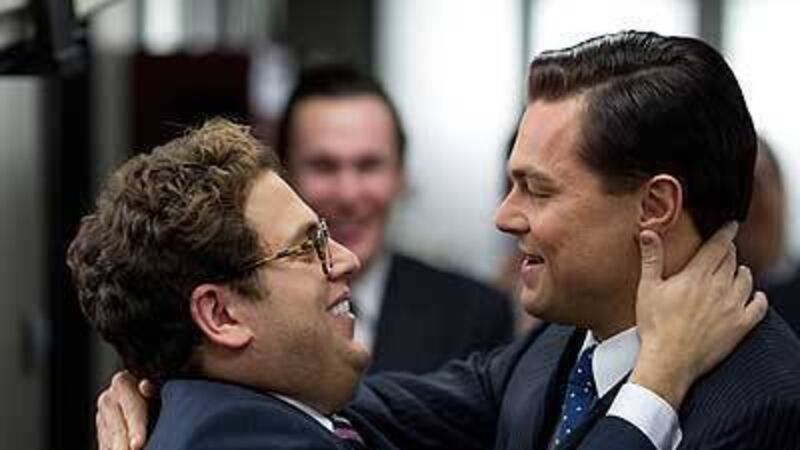Movie reviews: The Wolf of Wall Street

The bluesy stomp of Howlin’ Wolf ’s Smokestack Lightnin’ pops up regularly throughout reminding us that Wall Street traders Jordan Belfort (Leonardo DiCaprio) and Donnie Azoff (Jonah Hill) are unlikely to enjoy a happy-ever-after. Based on the warts-’n’-all memoir of stockbroker Belfort, it’s a classic ragsto-riches tale, but the ‘heroes’ are unabashedly brutal and shallow, and naked in their ambition to make as much money as they can, and to spend it as flamboyantly as the 1980s culture of ‘greed is good’ demands.
Directed by Martin Scorsese, the movie owes such a significant debt to Scorsese’s own Goodfellas (1990) that it feels like a remake: an irrepressible DiCaprio implicates the audience as he speaks to camera about the joys of crime and vice, of stealing from the stupid and greedy rich, and about the decade-long orgy of Bacchanalian sexand-drugs excess funded by the traders’ illicit activities.











